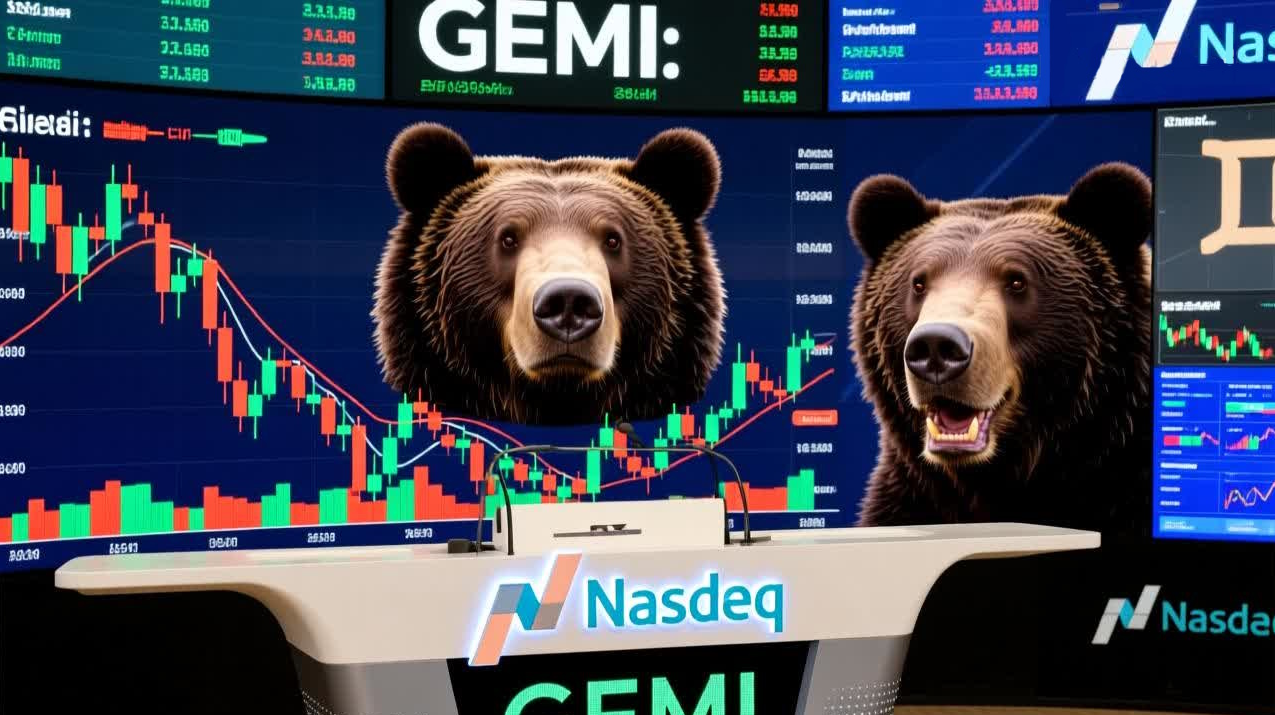Gemini stock has slid to record lows after the crypto exchange released its first quarterly earnings report as a public company.
The earnings report showed strong top-line growth, but heavy IPO-related costs sent losses deeper and rattled investors.
Revenue jumps, but losses overshadow gains
Gemini reported third-quarter revenue of roughly $50.6 million, more than double the $24.5 million from the same period a year earlier.
Trading helped drive that growth, with transaction fees contributing about $26 million. Services — including the Gemini credit card and staking — provided nearly $20 million and now account for close to 40% of revenue. Management described this diversification as a deliberate shift away from pure trading dependency.
Despite the revenue surge, the company posted a net loss of $159.5 million. That loss widened sharply from $90.1 million a year earlier.
A large portion of the deterioration is related to stock-based compensation and marketing tied to the Gemini IPO. Adjusted EBITDA remained negative, and the company reported a loss per share near $6.67 in the quarter.
Product traction and international moves
According to the earnings report, Gemini’s consumer products have shown significant momentum.
The Gemini credit card surpassed 100,000 open accounts and recorded roughly $350 million in quarterly spending. Staking balances climbed to the hundreds of millions, and card revenue and staking together helped lift services revenue significantly. The company also launched a self-custody wallet during the quarter.
On the regulatory front, Gemini secured a MiCA license that enables operations across multiple European jurisdictions. The exchange also began operations in Australia, following local registration.
The exchange also recently joined hands with Ripple, Mastercard, and WebBank to pilot RLUSD stablecoin settlements on the XRP Ledger. Executives said these moves are part of a long-term plan to broaden their addressable market.
Costs and outlook weigh on the market
Operating expenses rose steeply to more than $171 million for the quarter, with roughly $44 million linked to IPO-related stock-based compensation.
Management characterized many expenses as strategic investments in user growth and product development. Still, investors focused on profitability and free-cash-flow timing, which pressured the share price.
Gemini provided a forward-looking guidance, forecasting services and interest revenue between $60 million and $70 million for the full year.
The company also outlined expectations for technology and general and administrative spending, and signaled continued marketing outlays as it scales user acquisition.
Management doubles down on “super app”
On the earnings call, president and co-founder Cameron Winklevoss framed the quarter as foundational for a larger ambition. He emphasized building a crypto “super app” that would let users hold stablecoins, tokenized equities, and other digital assets in one place.
The firm is pursuing prediction markets and filed with the Commodity Futures Trading Commission to become a designated contract market. Executives described product development as organic rather than acquisition-driven.
Co-founder Tyler Winklevoss stressed trust and engagement as core to driving liquidity. The leadership team repeated a commitment to expand product breadth while investing in compliance and international licensing.
Market reaction and what it means for Gemini stock
Shares of Gemini Space Station, Inc. fell sharply in after-hours trading, hitting an all-time low in the session following the earnings report.
The stock closed higher during regular trading but then retreated in extended hours, reflecting investor concern about the pace at which revenue growth will translate into sustained profits.

Notably, Gemini (GEMI: NASDAQ) stock has traded well below its September IPO price since listing, as broader market conditions and the company’s expense cadence added pressure.
For shareholders and prospective buyers, eyes are on how quickly services revenue will scale to offset trading volatility, and when the firm will convert aggressive product investment into consistent profitability.

